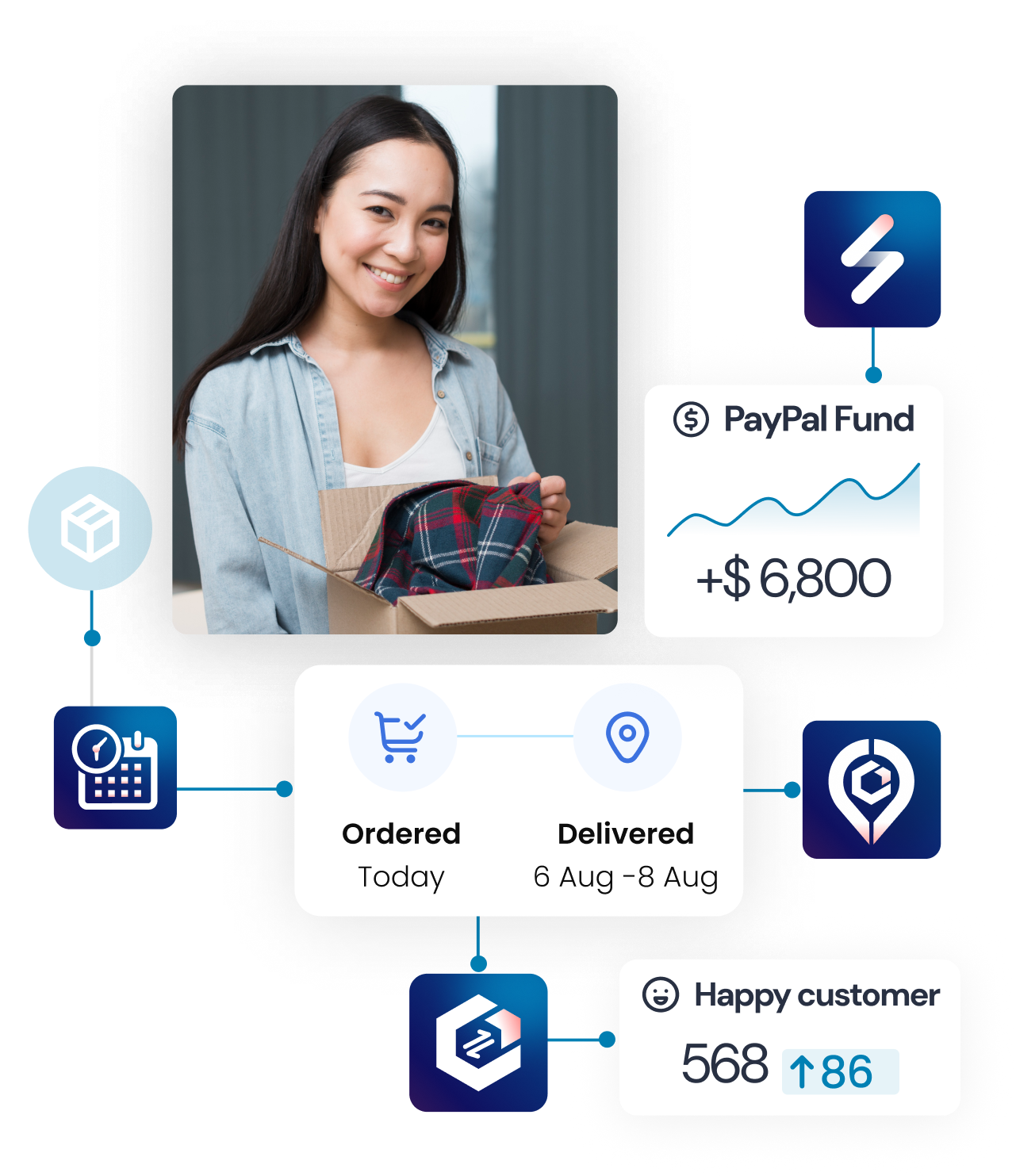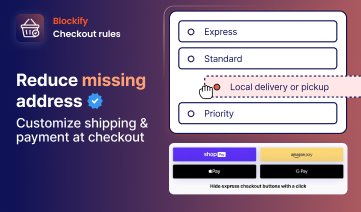
Artificial Intelligence (AI) is a rapidly growing field that involves the development of computer systems capable of performing tasks that typically require human intelligence, such as visual perception, speech recognition, decision-making, and language translation. AI has many applications in the online retail industry, including product recommendations, customer service, fraud detection, and inventory management.
In today’s article, let’s walk through some of the most used AI tools currently helping online merchants leverage their businesses.
Personalized Product Recommendations
One of the most common applications of AI in eCommerce is product recommendation systems. These systems use data analysis and machine learning algorithms to suggest products likely to interest a particular customer based on their purchase history, browsing behavior, and other relevant data. This can help increase customer engagement and sales by providing personalized suggestions that are more likely to result in a purchase. According to a study by Barilliance, product recommendations can account for up to 31% of eCommerce store revenue.
Here are some popular product recommendation tools for eCommerce stores, the eCommerce platforms they support, and their main features:
Nosto

Nosto is a personalized product recommendation tool that uses AI to provide customers with relevant and personalized product recommendations across multiple channels.
eCommerce platforms:
- Shopify, Magento
- WooCommerce
- BigCommerce
- Salesforce Commerce Cloud, and more
Main features:
- Personalized recommendations
- Behavioral tracking
- A/B testing and more
Barilliance
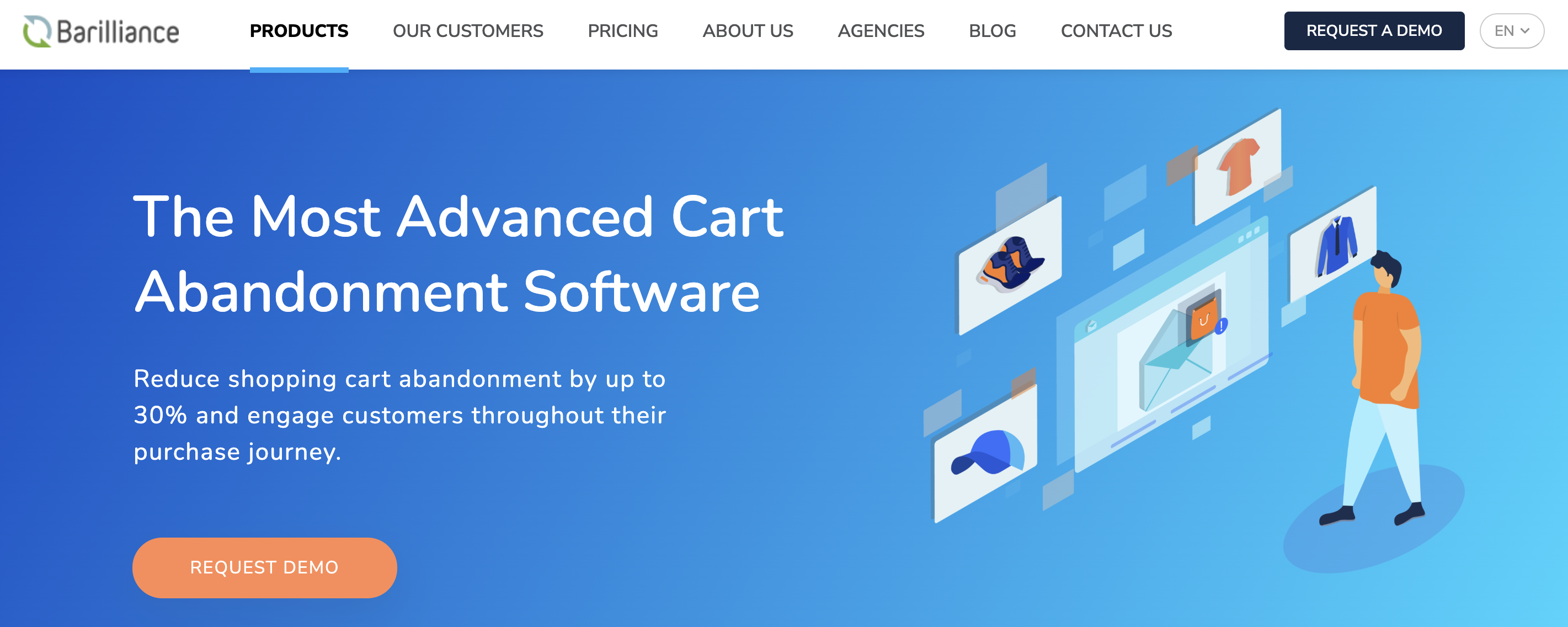
Barilliance provides eCommerce stores with a suite of personalization tools, including product recommendations, email personalization, and personalized pop-ups.
eCommerce platforms:
- Shopify
- Magento
- WooCommerce
- BigCommerce
- Volusion and more
Main features:
- Personalized recommendations
- Email personalization
- Real-time analytics and more
RichRelevance

RichRelevance brings online merchants a host of personalization tools for eCommerce stores, including product recommendations, search personalization, and personalized emails.
eCommerce platforms:
- Shopify
- Magento
- Demandware and more
Main features:
- Personalized recommendations
- Real-time analytics
- A/B testing, and more
Amazon Personalize
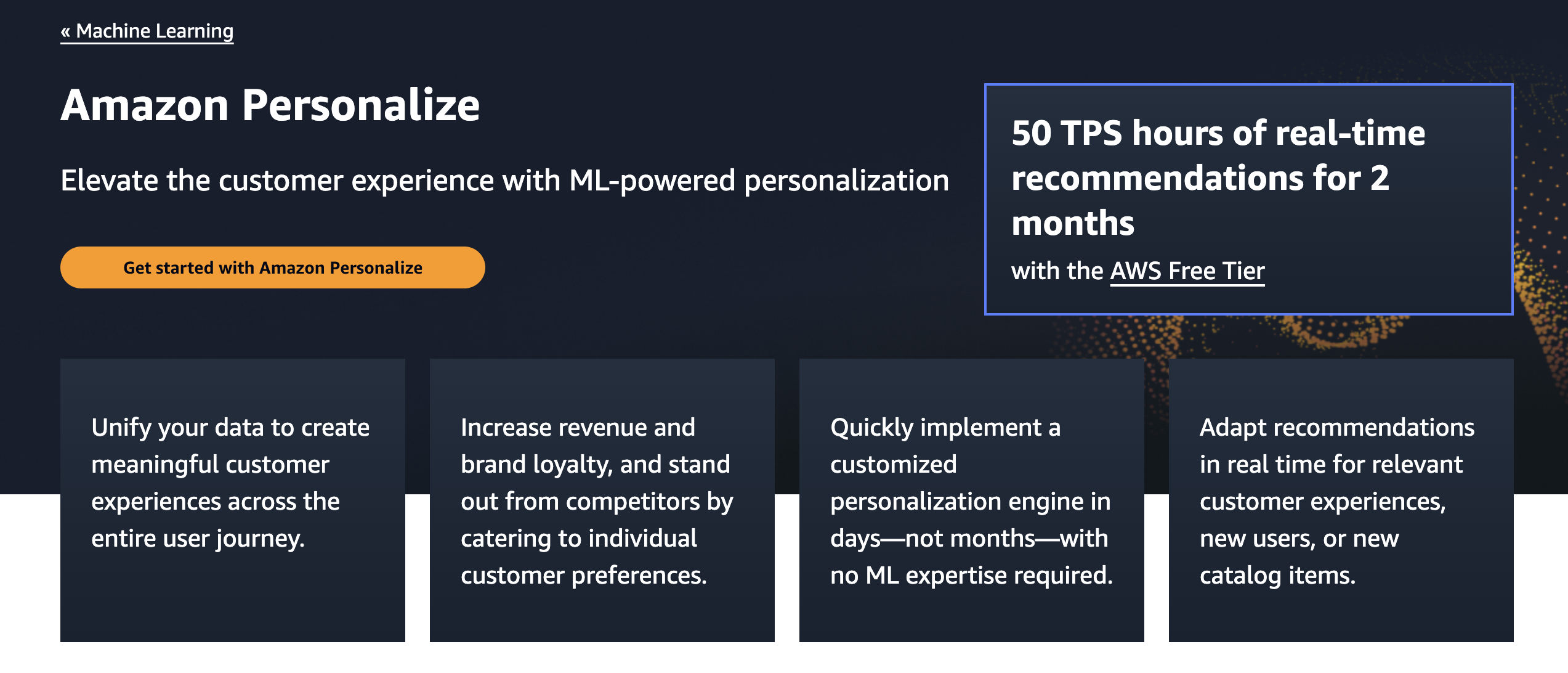
Amazon Personalize is an AI-powered recommendation engine that allows eCommerce stores to create personalized product recommendations for their customers.
eCommerce platform: AWS
Main features:
- Personalized recommendations
- Real-time analytics
- API access, and more
Boost AI Search & Discovery
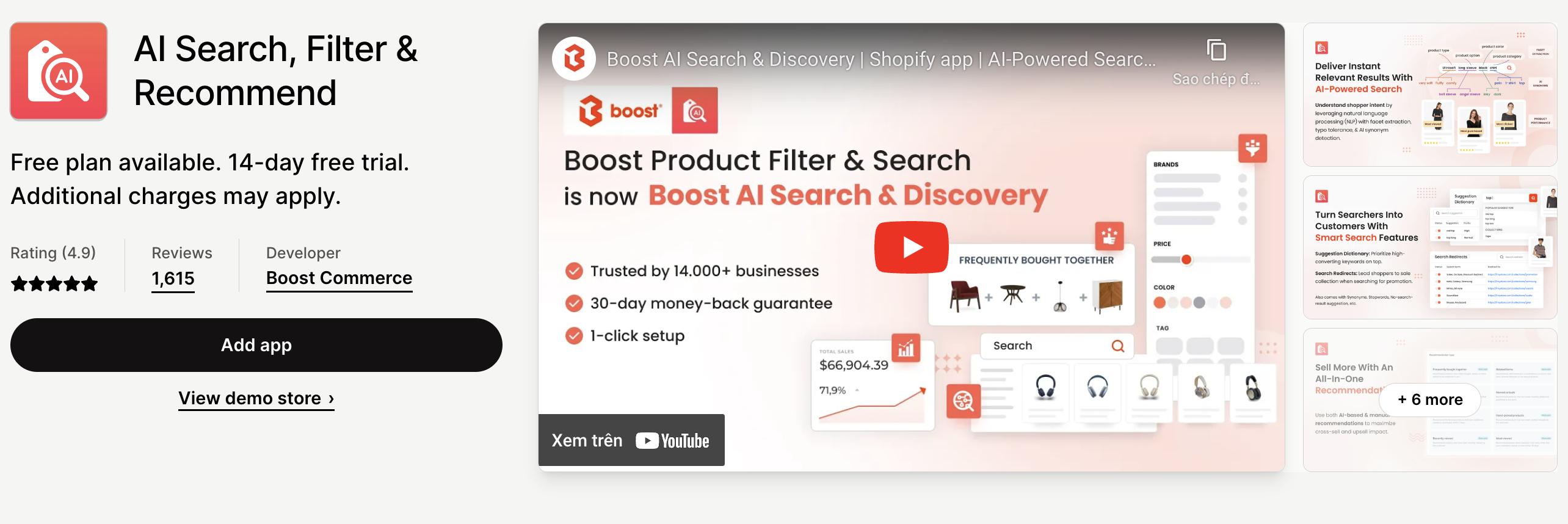
Boost offers 8 Product Recommendation types for Shopify including 2 AI-powered models, 5 statistic-based, and 1 manual selection. Recommended products are auto-generated based on your store’s statistics once you finish setting.
eCommerce platform: Shopify
Main features:
- 8 AI-fueled product recommendations types
- Enhanced upsell and cross-sell strategies on your homepage, search page, collection page, product page, cart page, and thank you page
- Theme App Extension to make recommendation widgets blend with your store design
- Analyze recommendation performance from different angles
Read more: How To Boost Basket Sizes With eCommerce Product Recommendations
Enhance Customer Service With Chatbot Technology
AI can also be used to boost customer service when applied to chatbots. These AI-powered assistants can answer customer inquiries and help shoppers navigate the website. Chatbots are also able to continuously improve customer experiences as they gather and learn from feedback.
AI chatbots can help online merchants in several ways:
- Improve customer service: AI chatbots can handle customer inquiries and provide support around the clock, improving the customer experience and reducing the burden on customer service teams. They also offer personalized assistance by using customer data to suggest products or provide relevant information.
- Increase efficiency: AI chatbots can handle multiple customer inquiries simultaneously, reducing wait times and improving efficiency. This can help merchants save time and resources while improving customer satisfaction.
- Reduce costs: By automating customer support, AI chatbots help merchants save money on staff and training costs. They also reduce the number of returns or exchanges by giving customers accurate product information and recommendations.
- Enhance engagement: AI chatbots can be programmed to engage customers in a personalized and interactive way, improving customer engagement and loyalty. Likewise, they gather valuable data on customer preferences and behavior, which illustrate actionable insights to level up the customer journey and drive sales.
Let’s see some chatbot tools that help online store owners in communicating with customers.
MobileMonkey

A chatbot platform that provides eCommerce merchants with tools to create AI chatbots for their website, Facebook Messenger, and other messaging channels. It features a drag-and-drop chatbot builder, live chat integration, and powerful analytics to help merchants improve their customer engagement and conversions.
Tars
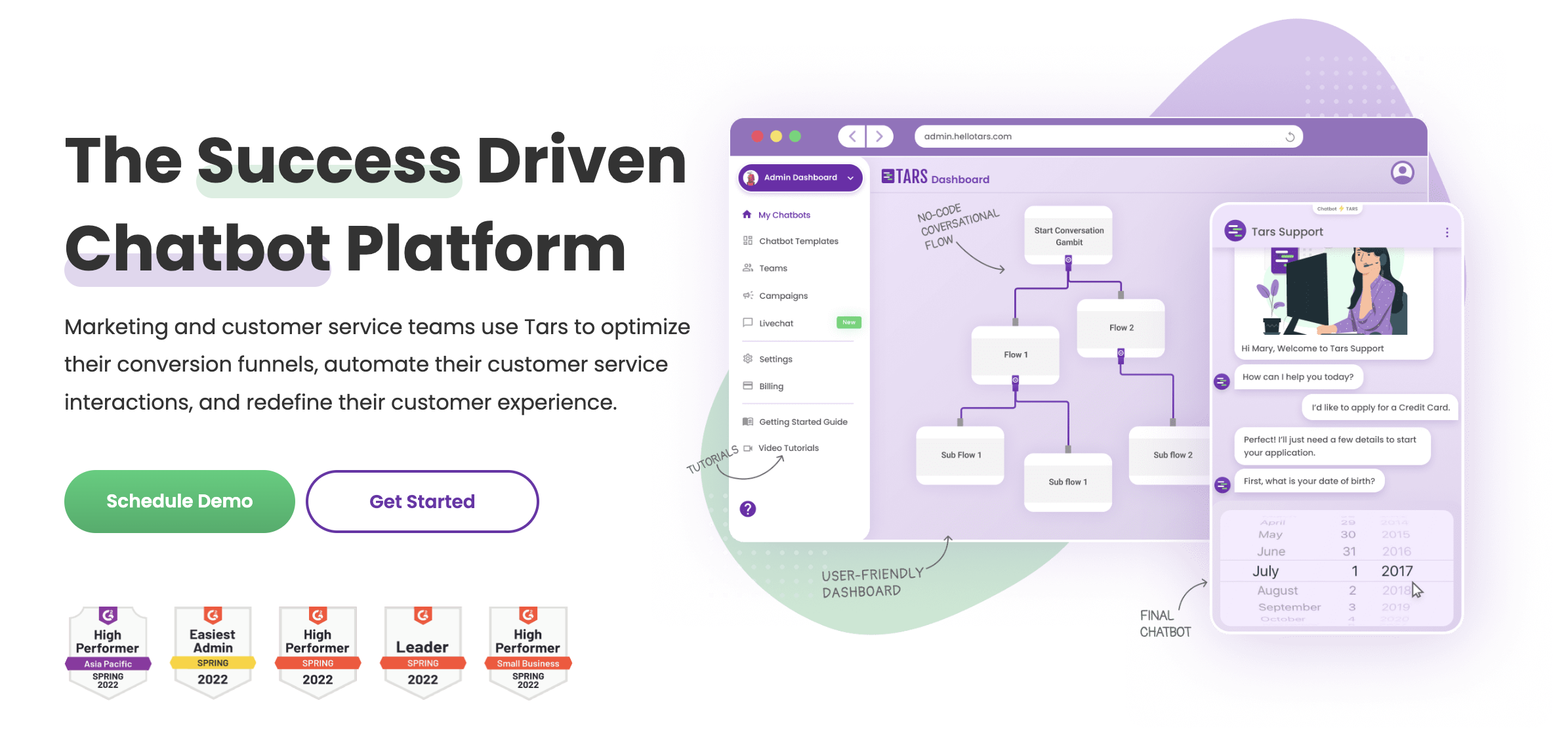
This is an AI chatbot platform that enables eCommerce merchants to create conversational chatbots for their website, Facebook Messenger, and other messaging channels. It features a user-friendly interface, customizable templates, and a variety of integrations to help merchants improve their customer service and sales.
Chatfuel

A chatbot platform that allows eCommerce merchants to create chatbots for multiple messaging channels. It features a drag-and-drop chatbot builder, AI-powered natural language processing, and integrations with popular eCommerce platforms such as Shopify and WooCommerce.
Ada
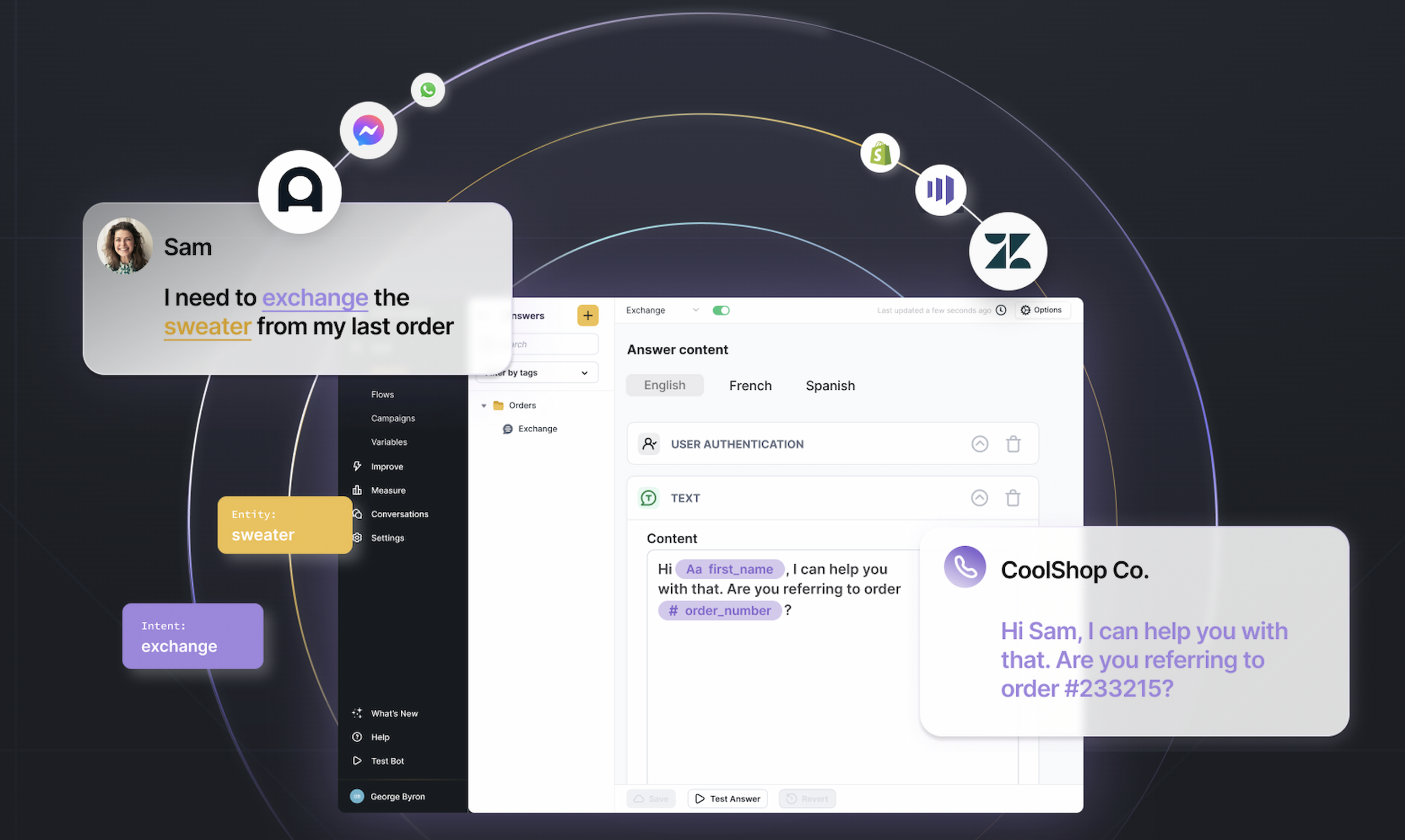
An AI-powered chatbot platform that provides eCommerce merchants with tools to create chatbots for their store, mobile app, and messaging channels. It features a drag-and-drop interface, customizable templates, and powerful analytics to help merchants improve their customer engagement and conversions.
These are just a few examples of eCommerce’s many AI chatbot tools. Each tool has unique features and capabilities, so you should carefully evaluate your needs and goals before selecting a chatbot platform.
Improve eCommerce Fraud Detection & Prevention
Another application of AI in e-commerce is fraud detection. Machine learning algorithms can be trained to detect patterns of fraudulent behavior and flag suspicious transactions, reducing the risk of fraudulent activity, and thus, protecting the business and its customers.
Here are some examples of how brands are using AI to detect fraud in eCommerce:
- Machine learning algorithms analyze transaction data in real-time to detect anomalies and flag potentially fraudulent transactions for review. These algorithms can learn from historical data to improve accuracy and adapt to changing fraud patterns.
- Natural language processing (NLP) techniques analyze text data, such as customer reviews and social media posts, for signs of fraudulent behavior. This can help e-commerce merchants detect fraudulent reviews, fake accounts, and other forms of online fraud.
- Image recognition technology can detect fake or altered images in product listings or customer profiles. This gives merchants a hand in preventing fraudulent activities such as image-based fraud, where fraudsters use fake or stolen images to deceive customers.
- Behavioral biometrics can analyze user behavior patterns such as typing speed, mouse movements, and device usage to detect anomalies that may indicate fraudulent activity. This helps merchants detect account takeover fraud, where fraudsters use stolen account credentials to make fraudulent purchases.
- Social network analysis analyzes the relationships between customers, merchants, and other entities to detect patterns that may indicate fraudulent activity. For instance, many purchases from new customers using the same credit card could indicate fraud.
By leveraging the power of AI, eCommerce merchants can protect themselves and their customers from online fraud and other security risks.
Smart Logistics
Using AI for inventory management is no longer something new in the e-retail industry. AI can help businesses optimize inventory levels, reduce waste, and improve profitability by analyzing past sales and forecasting future demand.
Still, in doubt? Let’s take a look at these statistics to see the potential benefits of using AI for inventory management in eCommerce:
- According to a survey by DHL Supply Chain, 95% of companies believe that AI will play a significant role in their supply chain in the next five years. Plus, 79% of companies plan to invest in AI over the next two years to improve their supply chain operations.
- A study by McKinsey pointed out that AI-powered inventory optimization can reduce inventory costs by up to 50% while improving service levels and reducing stockouts. This can result in significant cost savings and improved customer satisfaction.
- A survey by Retail Systems Research found that 70% of retailers believe that AI-powered demand forecasting can improve inventory management and reduce out-of-stock incidents.
As AI technology evolves, we expect more e-commerce companies to leverage AI to optimize their inventory and supply chain operations.
| Tools |
Features |
| Blue Yonder |
- Demand planning
- Inventory optimization
- Supply planning
- Allocation and replenishment
|
| Zoho Inventory |
- Inventory control
- Warehouse management
- Multichannel selling
- Order management
- Order fulfilment
- Insightful reports
|
| Logility |
- Demand planning and optimization
- Causal forecasting
- Life cycle planning
- Inventory planning and optimization
- Vendor management
- Quality control
- Allocation
- Automated promising
- Supply chain data management
- Network optimization
|
| TradeGecko |
- Inventory control
- Order management
- Purchasing
- Warehouse management
- Reporting
- Manufacturing
|
These AI tools offer a range of features and capabilities for inventory management in eCommerce, including demand forecasting, inventory optimization, supply chain visibility, and real-time analytics. E-commerce merchants should carefully evaluate their needs and goals before selecting an AI tool to manage inventory.
Wrapping Up
Using AI in the eCommerce game can help you improve customer retention, adopt seamless back-office automation, and find efficiencies in your sales processes. It can assist you in making better use of your customer and business data to create a successful long-term strategy. So look into the numerous benefits of artificial intelligence and machine learning to provide the best shopping experience on your eCommerce website.

